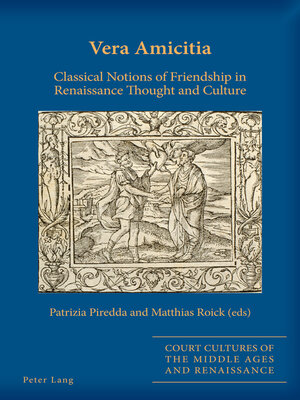Vera Amicitia
ebook ∣ Classical Notions of Friendship in Renaissance Thought and Culture · Court Cultures of the Middle Ages and Renaissance
By Sarah Alyn Stacey

Sign up to save your library
With an OverDrive account, you can save your favorite libraries for at-a-glance information about availability. Find out more about OverDrive accounts.
Find this title in Libby, the library reading app by OverDrive.



Search for a digital library with this title
Title found at these libraries:
| Library Name | Distance |
|---|---|
| Loading... |
This book investigates the meanings of the notion of friendship in the Renaissance from two perspectives, philological and philosophical, by observing how the notion was used in a broad spectrum of case studies of Renaissance culture. Each chapter highlights the ways in which authors of the sixteenth and seventeenth centuries (writers, philosophers, philologists, politicians, etc.) appropriated Greek and Latin paradigms of friendship, on the one hand, applying them to understand their own social and political context while, on the other hand, they created new paradigms of friendship in both the public and private spheres. Each chapter develops an argument on the notion of friendship starting from the investigation of a particular context and creating a network of connections between words related to friendship, such as speaking sincerely (parrhēsia), flattery, justice, love, pleasure, good, utility, virtue, good life, and truth, in both the private and public domains. The writers addressed in the various chapters are – with regard to the ancients – Plato, Aristotle, Epicurus, Plutarch, Cicero and Seneca and – among the moderns – Machiavelli, Montaigne, Thomas More, Erasmus, Juan de Mariana, Feliciano Silvestri, Johannes Caselius, the members of the Fruchtbringende Gesellschaft, and the authors of Renaissance emblem books.







